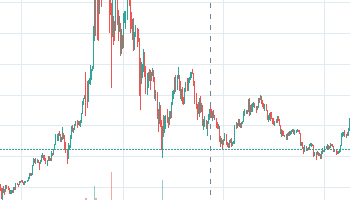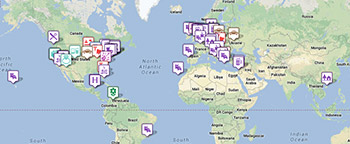Some ten years ago, you just vaguely heard about Bitcoin, the first fully virtual currency that can be traded peer-to-peer without the intervention of banks. If you had finally found the idea exciting, and are about to start investing and trading in cryptocurrencies, the first step is to choose a crypto broker. To avoid any confusion before helping you to choose the right one, let's take a quick look into differences between crypto exchanges, crypto only and Forex crypto brokes.
Crypto broker vs crypto exchange
Crypto broker is the intermediary between you and the financial market. You buy and sell the chosen cryptocurrencies according to the prices set by the crypto broker opposite from the crypto exchange where you are dealing with direct traders who set their own prices.
Crypto only broker vs Forex crypto brokers
Difference between crypto only and Forex crypto brokers is that the first focus only on trading cryptocurrencies while Forex crypto besides the fiat currencies allows for trading cryptos. The crypto only broker operates 24/7 and the Forex crypto broker 24/5.
How to choose a crypto broker
Choosing the right broker for you involves reviewing and evaluating many factors. There are several parameters to consider before selecting a crypto broker: security, liquidity, fees and user experience.
1. Security
If your exchange is not secure, your funds could be compromised. Even if the crypto broker has other advantages besides, it will not compensate for this essential aspect. There are several security aspects to consider:
- The website address should start with HTTPS. Avoid those whose address begins with HTTP.
- For connection to the site, it is recommended that it uses two-step authentication (2FA, two-factor authentication)
- You should be able to deposit your funds offline in a cold storage mode. Cold storage is the other name for the hardware wallet. It enables you to store the coins in an offline internet mode to protect your digital assets from cyber hacks.
2. Legal aspects
It is generally recommended to use a crypto broker that is located and regulated in your country, making the process of following regulatory changes easier. However, you can, of course use exchanges that are in countries other than your own. Note that some exchanges only accept a limited number of countries.
3. Liquidity
The greater the volume of transactions, the more liquid the exchange will have. It will make transactions faster, easier, and without having to deal with many major price changes. It is also necessary to check if an exchange offers a system of "locked-in pricing", which guarantees you the price which you indicate at the time of your transaction even if it does not pass immediately.
Be aware that liquidity can vary according to the trading assets. For example, it might be high for BTC / EUR, but low for BTC / GBP.
4. Fees
Compare the fees for buying and selling cryptocurrencies. The average fee per transaction is 3%. The fees include flat fees, spread fees, inactivity fees, and can also vary depending on the country the broker is located in. There are also crypto brokers that market themself as non-fee brokers such as Robinhood. Although the difference between 1% and 3% may seem insignificant if you trade frequently and large amounts of coins this factor can largely reflect on your profits.
5. User experience
To choose the best crypto broker that perfectly suits your needs refer to the experience of other crypto traders and users of different trading platforms. There, you will find the answer to all the questions such as:
- Do you need to provide personal information to open your account?
- Is the interface easy to use on both a computer and a mobile device?
- What are other users saying about the pros and cons of trading regarding the specific platform?
The best places to find the users first-hand advice and feedback are forums like Bitcoin Reddit or Bitcoin Forum. And of course, don't forget to read the crypto broker reviews to have the whole picture about the specific broker.


 Updated every 10 minutes
Updated every 10 minutes


